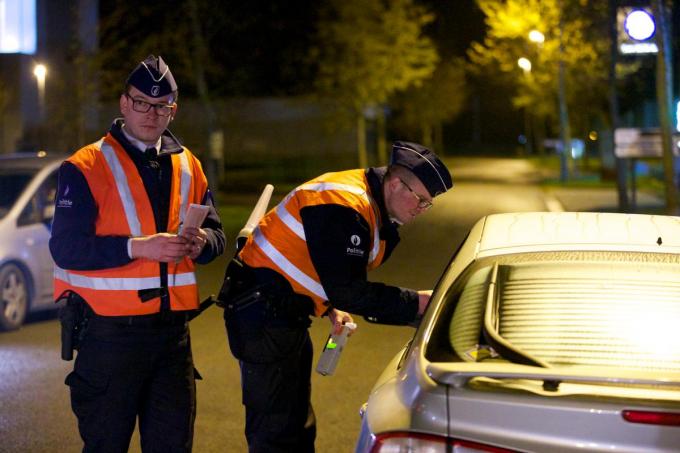As the number of traffic accidents caused by drug use while driving is increasing in Belgium, the police are being provided with three times more saliva tests than in 2020.
Two people died and five were in critical condition following a bus accident on Sunday afternoon on the E19. The driver later tested positive for drug use, and a further investigation must now reveal whether drug use was indeed the cause of the accident, according to Minister of Justice Vincent Van Quickenborne, who wants to reduce the use of drugs in traffic.
"The number of road accidents in which drivers drive under the influence of drugs is increasing every year. In 2019, there were 889 accidents due to the use of drugs behind the wheel and despite the corona measures, this rose further to 913 accidents in 2020," Van Quickenborne said in a press release.
The preliminary figures from the first half of last year showed that police registered 547 traffic accidents caused by drug use, six of which had a fatal outcome. "Behind these statistics lies an enormous amount of human suffering," he said.
100,000 tests
Studies show that the risk of an accident with fatalities or injuries is up to 30 times higher if a driver has been abusing drugs. A recent survey found that, in two years, the percentage of young drivers who admit to driving after taking drugs on a monthly basis increased from 11% to 19%.
As part of the same survey, 24,1% of participants indicated that they had to undergo an alcohol check last year, while only 4,1% were checked for drugs. Van Quickenborne argued that to tackle this issue, the chances of catching drivers who drive under the influence must increase.
Police districts in Belgium are being given 100,000 saliva tests this year, up from 36,000 tests in 2020 and 50,000 in 2021. "This way we can get a better picture of the real extent of drug use in traffic and the chances of being caught are tripled," he said.
Hefty fines
Police will use the saliva tests during regular traffic checks as well as in the event of suspicious driving behaviour. A saliva test is taken if a driver meets certain criteria, such as bloodshot eyes, nervous behaviour, and certain suspicious attributes in the car, among others.
The number of saliva collectors, which police can take after a positive saliva test to prevent a false positive and send to a lab for further analysis, also increased to 28,000, up from 15,000 last year.
Related News
- More than 1.66 million drivers in Flanders caught speeding in first half of 2021
- Average speed on Belgian motorways dropped by 10km/h
Following a positive saliva test, the public prosecutor withdraws the driving licence for 15 days, and if the lab analysis also returns positive, a summons to appear before the police court is mandatory, which can result in a driving ban of at least one month up to a maximum of five years and a fine of at least €1,600 up to a maximum of €16,000.
If a person is struggling with a persistent addiction problem and cannot provide negative urine tests at the trial, a lifelong driving ban may be imposed.

